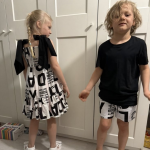How to Help an Autistic Child Adjust to a Change in Routine
Helping an autistic child adjust to a change in routine can be challenging, as many autistic children thrive on predictability and structure. Here are some strategies to ease the transition and help them manage changes in routine:
- Prepare in Advance
- Provide a heads-up: Inform the child in advance about the upcoming change, especially if it’s something they are not expecting. Give them enough time to process the information.
- Visual schedules: Use visual schedules or calendars to show the child the change, so they can see what’s coming up.
- Social stories: Create a social story that explains the change in routine and helps the child understand the reason for it, using simple and clear language.
- Offer Predictability in New Situations
- Create new routines: If the change involves a new activity or schedule, establish a new routine around it. Consistency in the new routine can help the child feel secure.
- Use familiar items: Bring along familiar items or routines that the child associates with comfort, such as a favorite toy or blanket, to the new activity.
- Gradual Transitions
- Small steps: If possible, introduce the change gradually. For example, you can break the new routine into smaller steps and introduce one change at a time, rather than all at once.
- Practice ahead of time: If the change involves a new environment, such as a new school or class, practice visiting the location beforehand to familiarize the child with the space.
- Use Clear and Simple Communication
- Be clear and direct: Use straightforward language to explain what will happen. Avoid abstract concepts and focus on what is concrete.
- Visual cues: Pair verbal explanations with visual aids, like pictures or written instructions, to reinforce the information.
- Provide Emotional Support
- Acknowledge feelings: Recognize and validate the child’s feelings about the change. It’s okay for them to feel upset or anxious, and letting them know you understand can provide reassurance.
- Offer comfort: If the child becomes anxious, provide comfort through calming techniques like deep breathing, a calming space, or physical comfort (like holding hands).
- Reinforce Positive Behavior
- Praise flexibility: Reinforce any effort the child makes to adjust to the change, even if it’s small. Positive reinforcement can help build resilience to future changes.
- Use rewards: Consider using a reward system to motivate the child to follow the new routine, offering small incentives for adapting to the change.
- Maintain Consistency in Other Areas
- Keep other routines stable: Try to keep other aspects of the child’s routine consistent, such as mealtimes, bedtime, and preferred activities, to provide stability while they adjust to the change.
- Be Patient and Flexible
- Allow time to adjust: Recognize that it may take some time for the child to fully adapt to the change. Be patient and understanding as they navigate the transition.
- Stay flexible: Be prepared to offer extra support or make accommodations as needed during the adjustment period.
By providing advance notice, using visual aids, offering emotional support, and reinforcing positive steps, you can help an autistic child adjust to a change in routine with greater ease and confidence.
Autism Treatment Center Videos
Autism treatment with own stem cells
Cord blood association congress
International Quality Crown
Autism Treatment Reviews
Autism treatment with own stem cells
The story of Alessandro (6 years old)
Autism Patient Testimonial - Stem Cell Treatment
Clients Testimonials
Our daughter Elina is 5 years old. In November 2025, Elina underwent an autologous stem cell transplantation for autism treatment at the Mardaleishvili Clinic in Georgia. Although only two and a half months have passed since the transplantation, we are already seeing clear positive results. Elina’s understanding of spoken language has improved — she now understands and follows all of our instructions. Her vocabulary has expanded, and she has started forming two- to three-word sentences. At kindergarten and during individual...
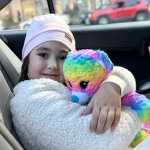
Lidiya — Elina’s mother Read More
My name is Anna, and I am the mother of a five-year-old boy named Sasha, who has an autism spectrum disorder. For a long time, I had been searching for a clinic specializing in stem cell transplantation, as I had heard a lot about this treatment. Eventually, I decided to choose the Mardaleishvili Clinic in Georgia — and I am convinced it was the right choice. The transplantation went successfully, and I truly felt that we had placed our trust...
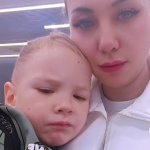
Anna – Sasha’s mother Read More
My son Amirkhon is 6 years old, and we are from Uzbekistan. In July 2024, he underwent a transplantation of own stem cells for autism correction at the Mardaleishvili Medical Centre in Georgia. Just three months after the transplantation, we began to notice the first positive changes. Before the procedure, Amirkhon had only echolalia — he used to repeat the words and phrases he heard. Now he speaks on his own and expresses his own thoughts. His concentration and ability...

Amirkhon’s father — Tokhir Read More
In December 2024, my daughter Dilana (4 years old) underwent a transplantation of her own stem cells for autism correction at the Mardaleishvili Clinic in Georgia. Since the transplantation, Dilana has definitely shown improvements. She learned to use the toilet, which she couldn’t do before. Before the transplantation, Dilana did not speak and didn’t respond to her name, but now she almost fully understands spoken language. Dilana has become much more sociable, approaches other children more often, tries to make...
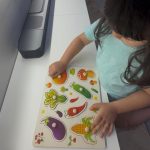
Dilana’s mother Read More
We are the parents of a special boy, Ilya. In February 2025, we came to Georgia from USA so that Ilya could undergo a transplantation of his own stem cells for autism correction at the Mardaleishvili Clinic. Ilya has changed a lot over these six months: he began speaking in long sentences, asks many questions, and is interested in various information. Before the procedure, he didn’t express emotions; now he has become more emotional and has learned to joke. His...
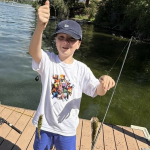
Irina and Stefan – Ilya’s parents Read More
My name is Kristina, I am the mother of twins Nelly and Nik. At the age of five, my children underwent a transplantation of their own stem cells at the Mardaleishvili Clinic in Georgia for autism correction. Since Nik’s condition was initially more complicated than Nelly’s, the results with Nelly appeared more noticeable. Before the transplantation, she could only produce sounds. But within six months afterwards, she started to speak and form phrases. Now she speaks in long sentences, can...
